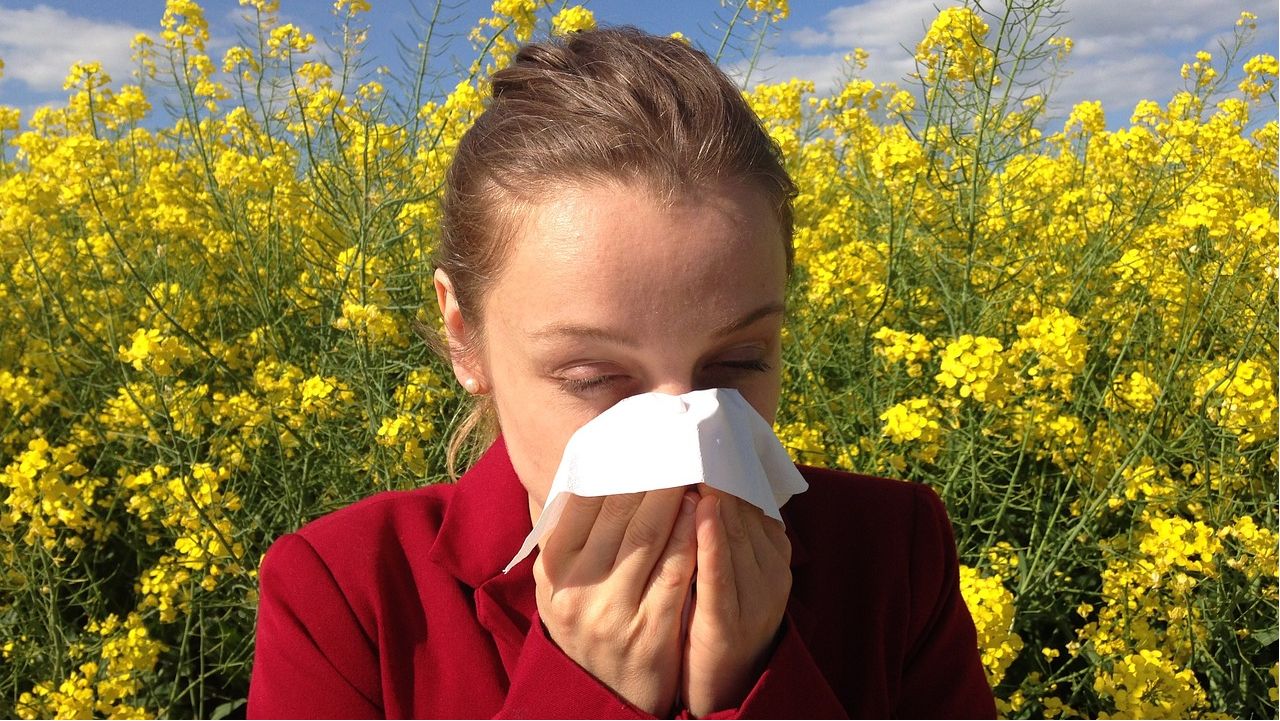NORTH CAROLINA -- If you're sniffling and sneezing, there is a good chance that those symptoms are caused by allergies and not COVID-19. With the recent warm weather, we are just getting started with allergy season in North Carolina.
Around eight percent of the U.S. population is affected by pollen allergies. That's according to John Hopkins Medicine, who also states that allergies are the sixth leading chronic illness in the country.
Unfortunately for allergy sufferers, pollen season is getting longer across the United States including here in North Carolina. Our warming climate is to blame.
Climate Central, an independent group that studies the local impacts of climate change, recently tracked the time between the last freeze of spring and the first freeze of fall for 201 cities. That is the time when plants grow, flower, and produce pollen. Their study found the growing season, or pollen season, has gotten longer in 83 percent of those cities over the last 50 years.
That was the case for most North Carolina cities studied. Allergy season is now at least 25 days longer compared to 1970 in Asheville, Greensboro, and Raleigh.
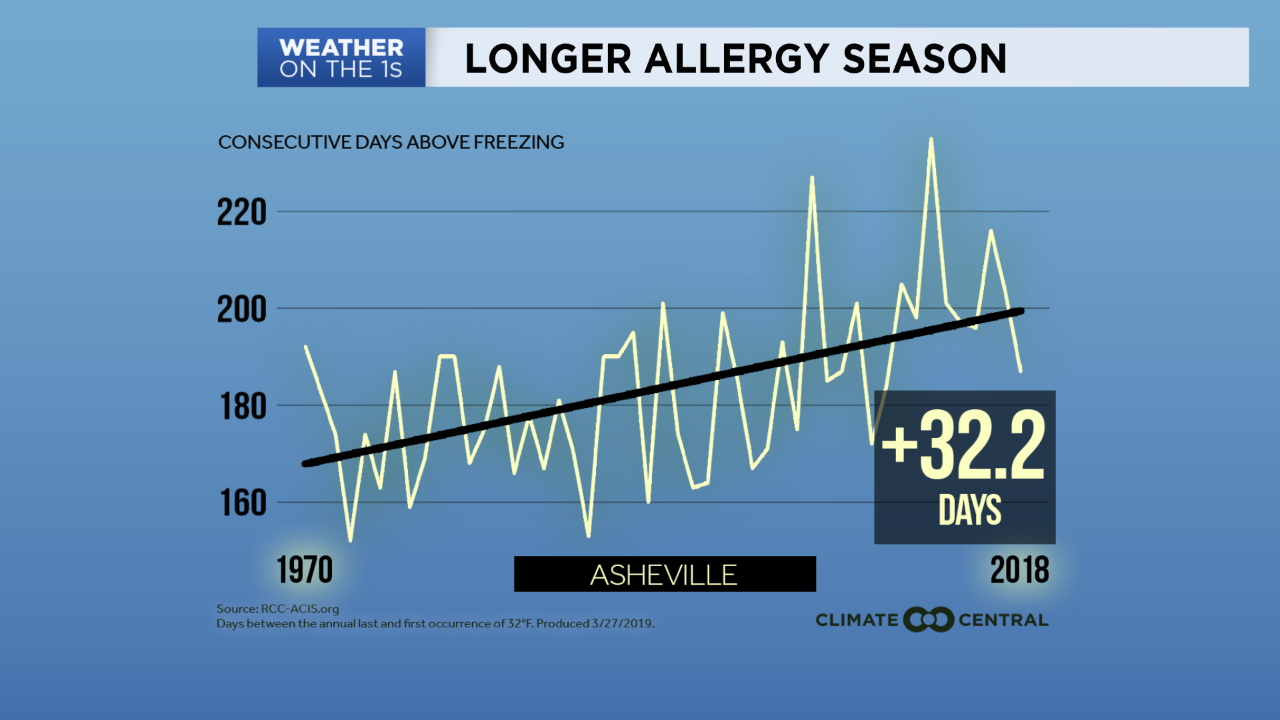
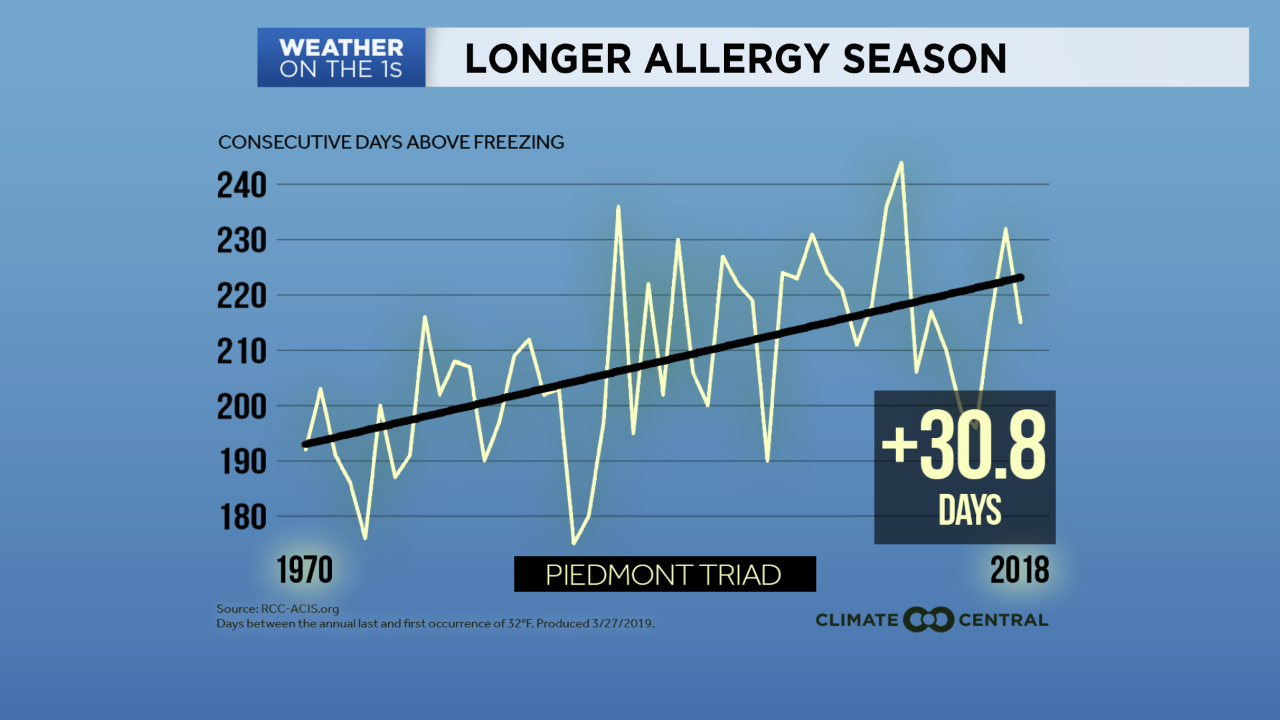
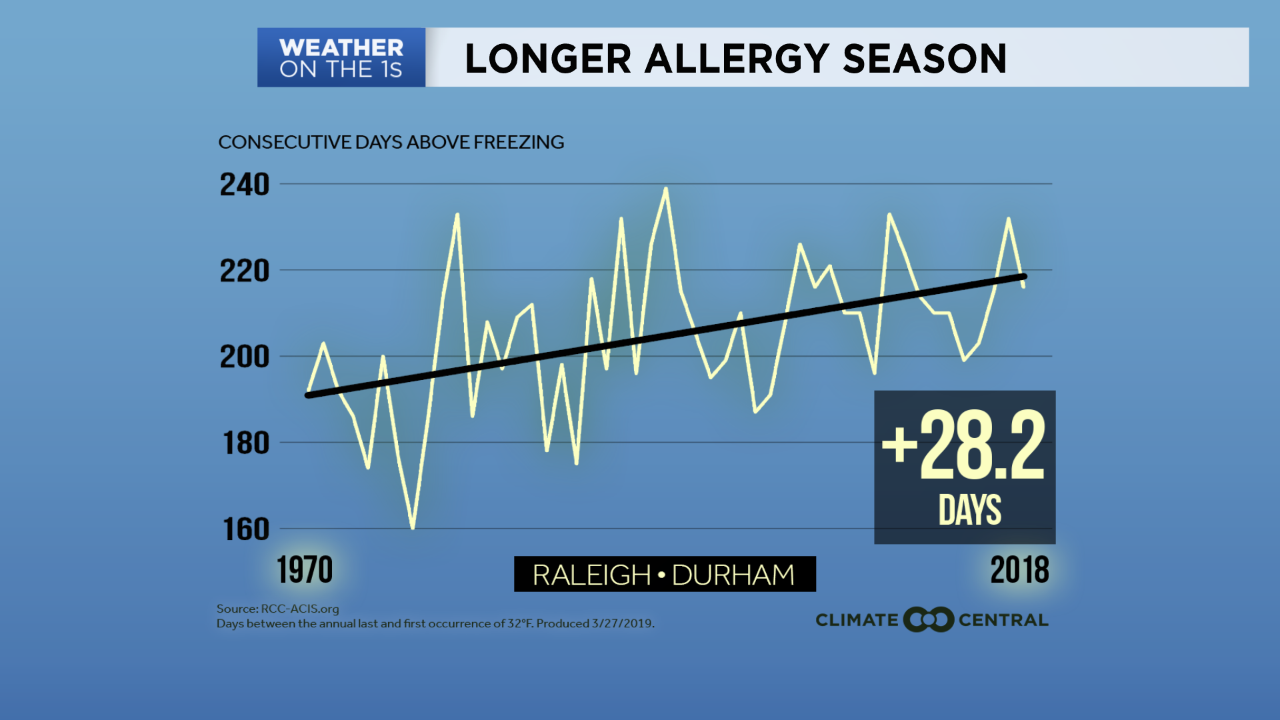
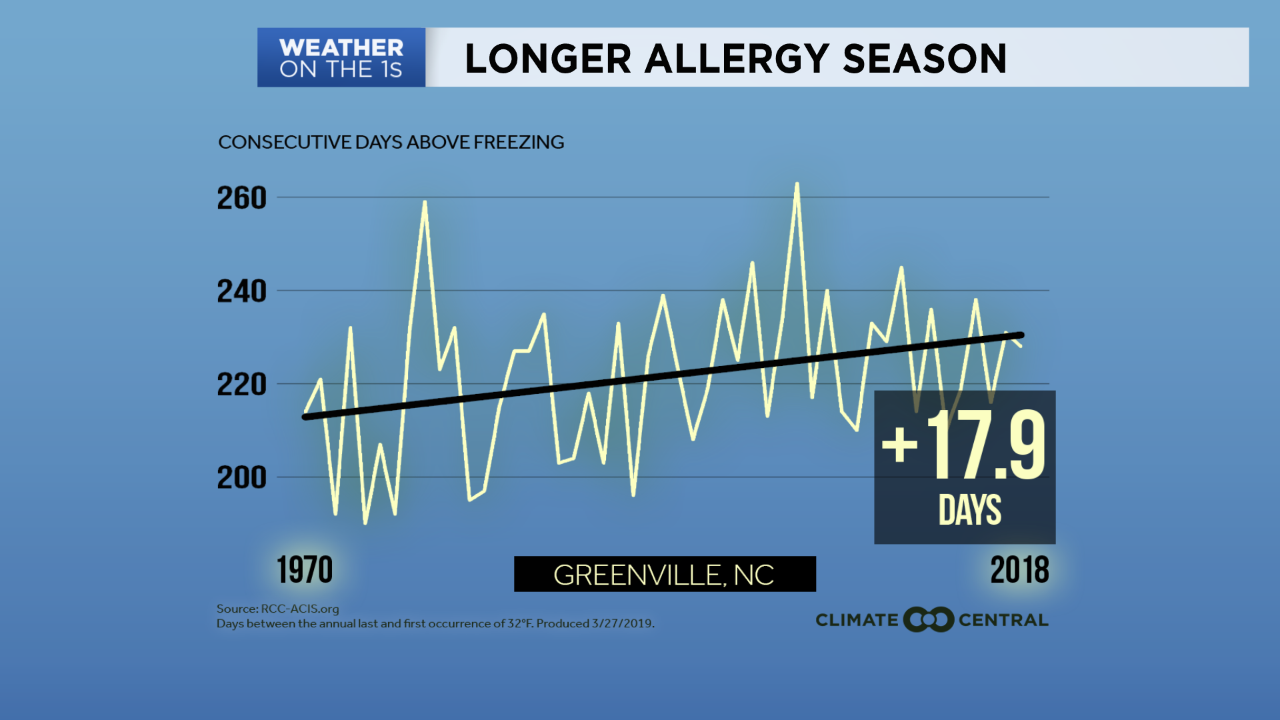
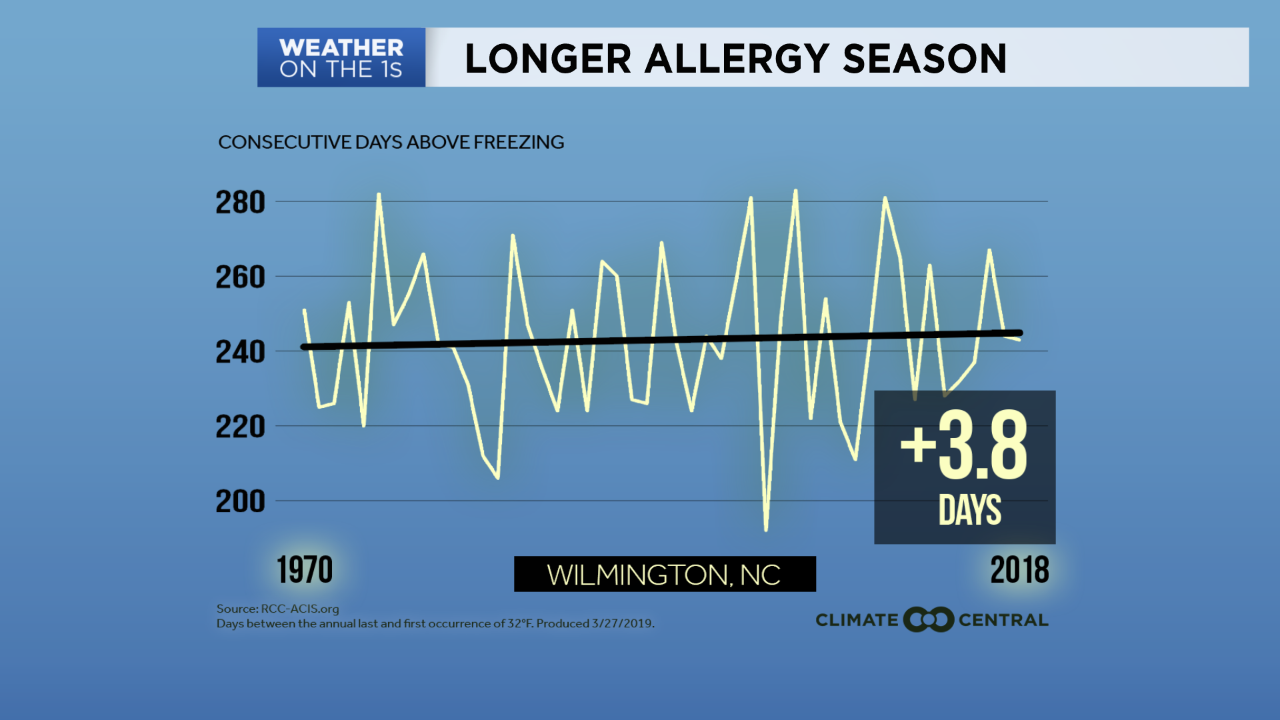
The only North Carolina city found to have a slightly shorter pollen season was Charlotte.
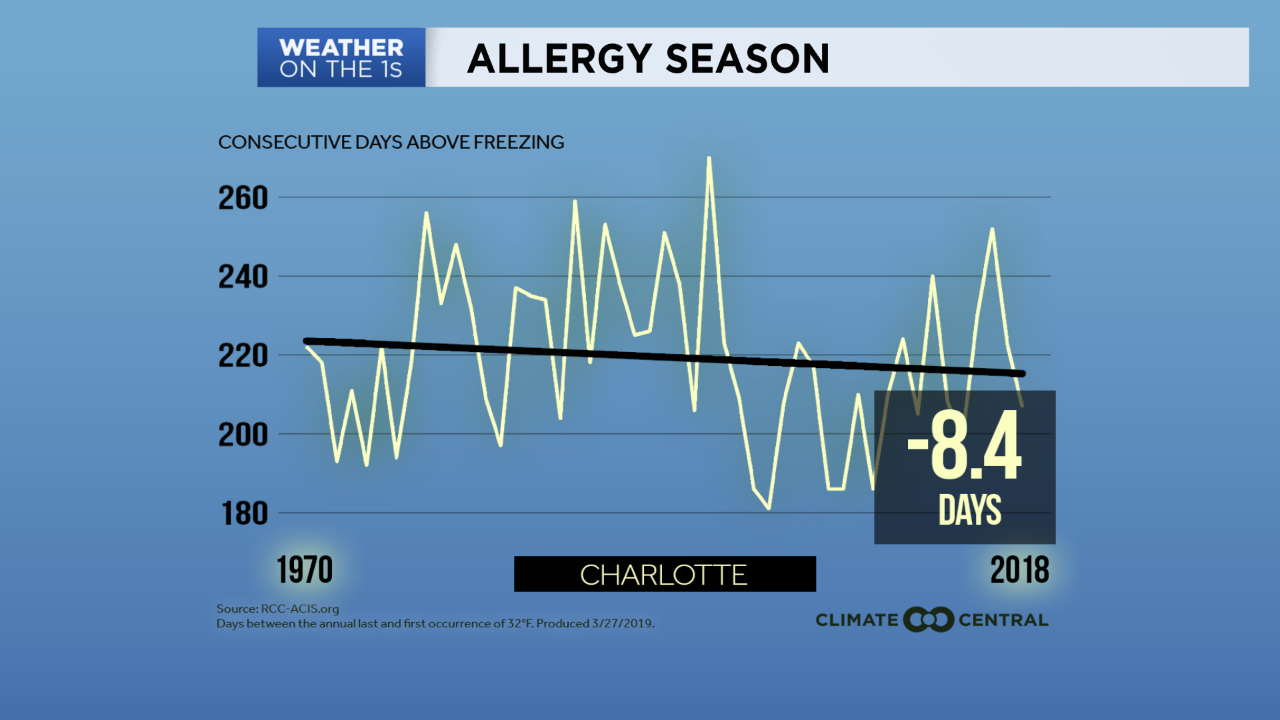
Past studies have also indicated that increasing levels of the greenhouse gas carbon dioxide are causing increasing amounts of ragweed pollen.



